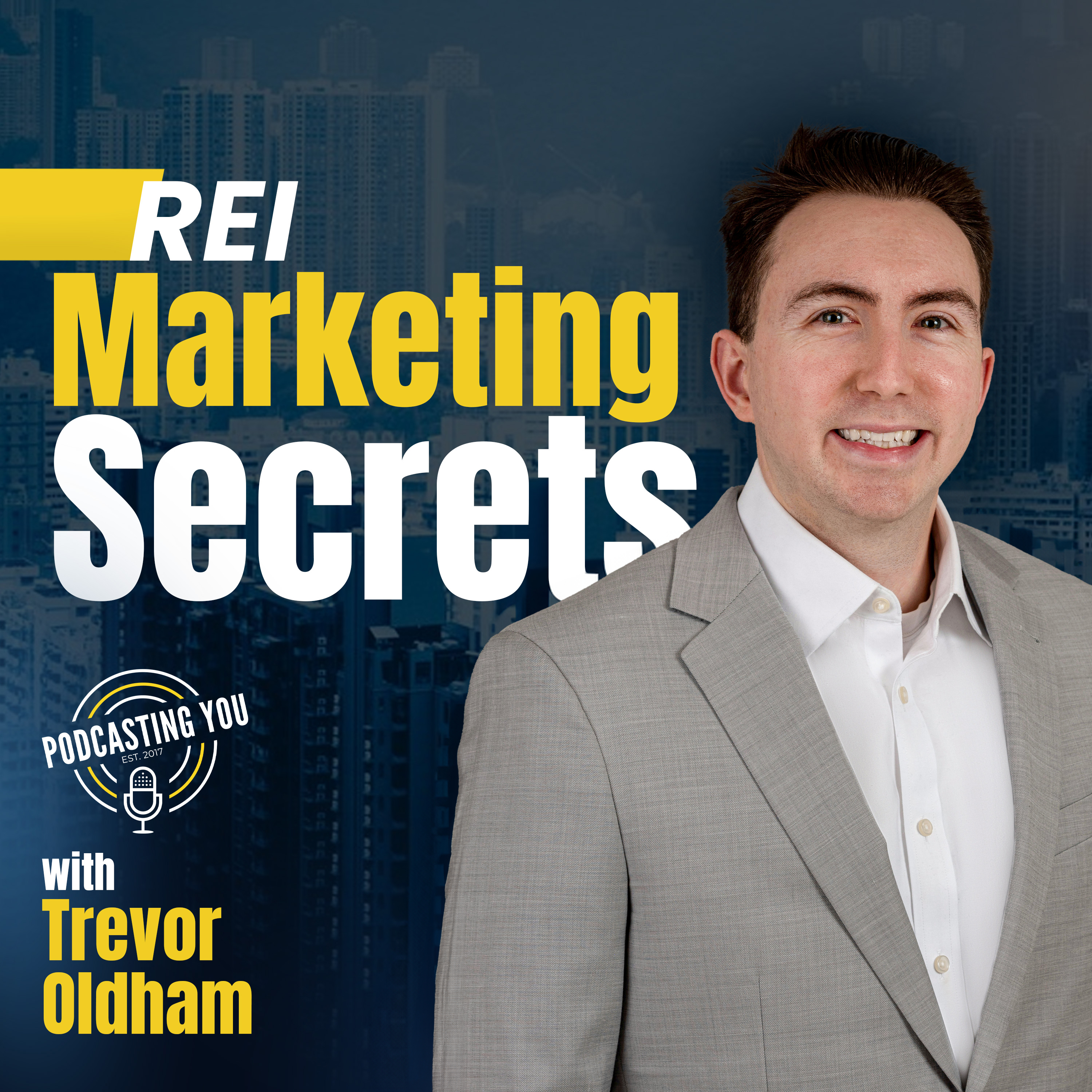In today’s episode, Scott Pickett, CEO of Post Investment Group, discusses the company’s focus on affordable housing in the multifamily real estate market. He explains their strategies in the affordable housing space, including their expertise in low-income housing tax credit properties. Pickett also highlights the importance of defensive strategies in multifamily investing and the benefits of public-private partnerships. He emphasizes the company’s track record, obsessive attention to detail, and commitment to transparency as reasons to invest with Post Investment Group.
Listen To The Podcast Here
Watch The Episode Here
Not Yet Available on Youtube
What’s Covered In This Episode
- In this episode we’ll cover:
- Post Investment Group specializes in affordable housing within the multifamily real estate market.
- Their strategies include investing in low-income housing tax credit properties and pursuing public-private partnerships.
- The company focuses on defensive strategies to protect investors’ capital and mitigate risk.
- Post Investment Group has a track record of over 130 acquisitions and emphasizes transparency and communication with investors.
Connect with Scott:
https://www.postregroup.com/
Resources
Want to get booked on podcasts? 👇
https://realestateinvestors.podcastingyou.com/
~~~
Learn how to master podcasts for business growth 👇
https://realestateinvestors.podcastingyou.com/ebook
Read The Transcript Here
Trevor Oldham (00:01.534)
Hey everybody, welcome back to the REI Marketing Secrets Podcast. Today on the show, we have Scott Pickett. Scott, super excited to have you on the show today.
Scott Pickett (00:09.981)
Trevor, thank you very much for having me.
Trevor Oldham (00:12.39)
And Scott, for our audience out there who’s like, who’s Scott Pickett? I have no idea who this guy is. Do you mind just going a little bit into your background?
Scott Pickett (00:20.037)
Absolutely. So father of three kids, currently very tired, but also extremely busy. So let’s see, I started my career at Thomas Properties Group, which was a publicly traded real estate investment company focused on commercial office space. But in 2010, I jumped from there and
Scott Pickett (00:50.145)
75 employees on the real estate side, excluding our property management and construction management affiliated companies. And they’ve been here since 2010, transacted on over 100 transactions with Post Investment Group. And it’s been an extremely fun ride those 14, 15 years.
Trevor Oldham (01:17.686)
I think the question, not so much question, but I commend you for having three kids. Me and my wife, we have a nine month old and it’s tiring enough. You know, it’s like we work throughout the day and then as soon as she comes home from daycare, it never ends. It’s even on the weekends, you know, it’s like work is actually the vacation. And then when she’s home, it’s the actual work that comes on. But it sounds like you’ve been at Post for a while. And as part of your company, what sort of asset classes are you looking at? Are you looking at commercial real estate?
Is it multifamily for just those in the audience? What are the sort of the, you know, the asset classes that you target as a company?
Scott Pickett (01:54.353)
Yeah, sure. So we are focused on multifamily and residential real estate. Within that, we’ve carved out quite a niche within the affordable housing space. So a little bit of background. Jason Post is the CEO, started it himself. We were buying a lot of distressed real estate during and throughout the great financial crisis. And then as cap rates and the distress as cap rates compressed,
and the distress began to dry up, we transitioned to affordable housing. So we first started buying what’s called low income housing tax credit, LITECH properties, became experts in the LITECH space, and have been pursuing that niche ever since, and have also transitioned into other aspects of affordable housing, and it’s been a phenomenal investment.
thesis and asset class for us. Multi-family can be somewhat simplistic when compared to other real estate classes. So we often pursue some of the most complex aspects of multi-family to create an edge. And having invested in affordable housing over the past, it’s been 14 years now, we perceive ourselves as experts in that space.
Trevor Oldham (03:23.954)
and I want to talk to you about that affordable housing before diving into a little bit of the multifamily and just curious on a strategy there. And I was talking to a gentleman the other day and his strategy, and I don’t know too much about affordable housing. I haven’t invested in it, but he was talking about his strategy where he would basically take over the properties where they have a tax credit and that tax credit is going to run out. I think for him it was after 10 or 15 years. So he would assume with the property with about five years left on that tax credit. Once that tax credit ran out, no more.
affordable housing, I guess, per se for that property. And then he was gonna bring it up to market value, whatever it was gonna be in the area. Let’s say affordable housing, it was 750 a unit. The tax credit runs out. Now he’s gonna bump it up to 1500, you know, and make his money that way. Just curious if there’s like a strategy you use like that or how that sort of works with your company.
Scott Pickett (04:13.029)
Yes, so there’s multiple strategies and we continue to evolve those over time. So as the market changes, we really stress on trying to stay ahead of the market and change with the market. So with the Litex space, we were buying very similar deals and what we loved about them was they were extremely defensive. And that is always first and foremost, our most important component of an investment.
is our investors’ money safe. So in the in light tech deals, we were buying properties where the rents were significantly below market. So if the market charges $1,000, but our property only charges 800, you’re almost guaranteed a wait list of tenants and high occupancy. Furthermore, if rents decrease 10%, they go from 1,000 down to 900, we are still insulated.
as our rents would still be below. So it really came out of being investors of the great financial crisis and learning lessons there and wanting to be in very defensive positions. Now the other aspect you mentioned was over time those properties become more valuable because you get closer to those restrictions expiring. And when they do, you can either push those markets, push those rents to market.
or work with local governments, which is something that we specialize in, to get subsidies to incentivize you to maintain the affordability. So the point of it is there’s a number of different avenues. And on that topic, that’s kind of parlayed into what we’ve been focusing on most recently, and that is public-private partnerships, working with government entities, all sorts of different groups.
to get subsidies to create affordable housing. They are going to incentivize you to create affordable housing. And by incentivizing you, they are, we must be getting a little bit more than what we are giving. And so that gives us an edge when we’re competing against all the other groups in multifamily, because it has become an extremely competitive environment. And that’s why we’re always looking for some sort of edge.
Trevor Oldham (06:40.098)
And do you think that, I want to say the last year or so, but definitely, I mean, you look at a lot of these multifamily operators in this space, and it’s pretty simple to see, you know, 80% LTV, variable rates, recipe for a disaster, and a lot, unfortunately, you’ve seen some of them go out of business. I think there was one in Texas, he lost like 400 million, and it was basically that recipe right there, over-leveraged, and then obviously as interest rates went up, he wasn’t doing so hot there.
And is that sort of your edge in your defense when it comes to the multifamily space is working with like these governments and these different sort of subsidies to make sure that you’re protective and make sure that the investors are protected.
Scott Pickett (07:19.417)
Yeah, so the strategies that we pursue within affordable housing are definitely defensive in that they either create protections with rent levels and occupancy or increase our NOY and protect us from cash flow. The other thing that we’ve historically always done is use fixed rate financing. So it’s not the most aggressive. And at times it’s created…
prepayment penalties where our profits could have been higher, but we still had profits. And so it’s a defensive mechanism where we always know what our interest rate is going to be and we can control that. So we were not one of those groups that borrowed at 0% interest rates or those floating rate loans were extremely low and in some cases could have been sub 2%. However, during those times we took…
great advantage of the low interest rates and locked in a lot of long-term low fixed rate debt. Those groups that were being aggressive during that time period are now facing their problems. And so that’s eliminating a lot of our competition. A lot of the syndicators that were using that fixed rate debt or, excuse me, floating rate debt are answering questions to brokers and lenders, mostly lenders, not brokers.
are answering questions to lenders and investors or trying to figure out what capital, what kind of band-aids they can put on those sinking ships. And we are fortunate where we’re in a position that we are not focused on that and that we can still be focused on the offensive. We have a extremely robust asset management team.
with a dedicated asset manager to every single one of our properties that is also supported by an asset management analyst pool. So you’ve got an asset manager that’s running the deals at our company and a pool of analysts that is cranking out all of the menial and mundane tasks so that asset manager can really be focused on implementing the business plan. But going back to your question.
Scott Pickett (09:41.029)
we are still on the offensive. And there are a large number of institutions who are on the sidelines right now as well. They follow a herd mentality, and we have a number of institutions that are partners of ours. Our primary bucket of capital is individual investors and high net worth investors. We have about 2,000 investors, and on average, they’ve been writing $100,000 checks.
for our most recent investments. But the reason why I bring up institutions is we are in constant communication with them and we know they’re on the sidelines. So you have a lot of syndicators who are on the sidelines right now. You have a lot of the large, big money institutions who are on the sidelines now, which is limiting our competition and just simple economic supply and demand.
less demand. Hopefully we’re getting better pricing right now.
Trevor Oldham (10:41.854)
Yeah, I think that’s super helpful for our audience. And for your company, what does that typical deal look like that you’re doing today? Is it just more so numbers-wise, like are you going after 50 units to 100 units, 100 plus? Is there a certain price per door that you’re looking at? What does that sort of look like from your standpoint?
Scott Pickett (11:00.089)
Yeah, sure. So the first question you asked about price per door and unit size, we always prefer to be at least 200 units or above. We get some good economies there from a payroll perspective. So I would say 200 units and above. In terms of price per door, we invest all over the country. We follow markets where there are strong demographics and where we can have some sort of edge as well.
So when you’re talking about demographics, that’s job growth, population growth, we’re looking at supply growth. That’s been a major factor right now. So I know there’s a lot of news clippings and information about how we’re facing a onslaught of new construction and supply and multifamily, which we are. However, we’re also facing a dearth of new permits.
being pulled because interest rates and construction costs are high. There’s very few new projects being created. So once all those deliveries hit and that, that will create some pressure on fundamentals over the next two years. Once we get through that supply of pipeline, we should be in a very, very appealing period of time for multifamily where there’s not a lot of new construction.
So, diving back to your price per unit, we’re always making sure that we’re buying below replacement costs. And so that’s market specific. We’re constantly researching what the price per square foot and price per unit to build is in Texas. What’s that in Georgia? What’s that in Washington? And making sure we’re buying beneath that.
Trevor Oldham (12:50.942)
Yeah, I think that’s super helpful to know. And obviously it’s more of a specific market because the price you’re going to pay in California is probably going to be different than the price you pay in Florida, Georgia, Texas, pretty much all these different markets. When it comes to these deals themselves, I know you mentioned your average investor, you know, recently writing you say a hundred K check for these deals. I guess it’s a two part question or maybe a three part question. However, we want to look at. So the first part I want to ask you is for these deals, is it more
of a fun model or is it more of like a single asset allocation where you’re going out and buying say one property in Texas or is it buying three properties in Texas and then putting those together in more of a fun model?
Scott Pickett (13:30.345)
Sure. So historically, it’s been a single asset, single deal. We just keep it nice and simple. We’ve never had any reason or need to do it differently. So let’s say an investor comes to us and just hypothetically has $100,000 they would want to invest. Our guidance to them would be, don’t invest $100,000 with us. Find different operators, spread it out, give $25,000 for the first deal that you like.
with us and then save $75 to spread that out over the next three. So diversification is important and we would strongly recommend that if someone’s investing with us for the first time.
Trevor Oldham (14:14.65)
Yeah, and I definitely agree with that. I know for me, when I was started off investing in different deals, I typically wanted to put 25K in and I wouldn’t want to put more than like, I don’t know, 10 to 15% of my net worth into any one sponsor. And that was just me personally, just because even the best sponsors, sometimes something might happen not to say not talking bad about your company or anything like that. That was just my personal preference. So I definitely agree with you there. And then talking about that 25K.
when you’re having these deals, is there a minimum? Is there a 25K minimum? Is it 100K minimum or does it sort of vary? Obviously if the building’s a million dollars, it might be a little bit lower of a raise than if the building’s a hundred million dollars depending on the check being written.
Scott Pickett (14:55.825)
Yeah, I would say probably about $25,000 is the minimum. And we don’t really have a distinct firm minimum. We don’t see many investors bringing less than that. And again, we have some groups that’ll put in north of seven figures and many individuals that’ll put in $100,000 or $25,000. So it kind of spans the spectrum.
Trevor Oldham (15:19.19)
Yeah, I think that’s perfect. And then for those investors out there, for the deals that you’re putting together, is it accredited, non-accredited? What does that sorta look like?
Scott Pickett (15:28.113)
so accredited investors.
Trevor Oldham (15:29.442)
Credit it, perfect, yep, that’s good to know. And then, I know you mentioned earlier that you had a database of about 2,000 investors within your pool. How did you go about finding those investors? Did they just come to you from track record, from reference, or was it going out there and building the brand over the course? I mean, I know you guys have been in business over 15 years now, so it’s been quite a while, but just curious what that’s looked like.
Scott Pickett (15:52.593)
Yeah, so it’s relatively unique. So before I get into that, we have invested on behalf of JP Morgan, Invesco. So some of the largest institutions in the world have vetted us and invested with us and continue to do so. Investing high net worth is our preference, and it’s honestly been 100% organic. So we really have not done any marketing.
We just recently launched a website. Prior to that, our website was as bare bones as possible and it’s really been through just organic growth and a track record. Every single deal we bring out, we find new investors and it’s usually referrals, either friends and family of investors who have previously invested with us. And…
We will take any meeting and any call anytime. And you just never know what will come from that. And so we meet great people, we find out what they do, we learn from them, and it’s honestly been a really fun process. And new investors are great. New investors will ask new questions and we will learn new ways to think about deals. So…
We’re always trying to adapt and get better. We’re not one of those groups that says, we know what we’re doing. I mean, I like to think we do know what we’re doing, but we can always improve.
Trevor Oldham (17:28.146)
Yeah, I think that’s excellent. And to touch on a couple of points there, when I did notice your website change, I think I was, when I first looked at you guys, I was like, come on, there’s, I saw, and the reason that we’re talking today is I saw someone made a strong recommendation for you in your company and that was all organic. I just saw someone said, hey, I was vetting this company. Here’s what I saw, here’s my thoughts. I was like, wow, that looks very good. Let me go and reach out to them and talk to the company. And then two, I went to the website and there wasn’t much on it, but now there is quite a bit.
quite a bit on it, so, and it looks very nice, so I just want to commend you guys, and whoever the web team or development team that did that, they did a great job, and I think that really speaks for itself. I mean, us passive investors, I think, you know, we talk to each other a lot. We’re always trying to figure out, you know, is this sponsor good, is this sponsor not good? And if, it’s almost like, if a sponsor does bad, if there’s poor communication, if the deal goes belly up, if they disappear,
you’re gonna hear about that and then one LP is gonna tell the next LP and the next LP and the next LP. And then similar, if I hear someone that’s invested in a company and they’ve had a good experience, the deal’s been good, the client communication’s been good, it’s gonna make me wanna go through and invest with that company. So I commend you guys for that and having that organic, really that track record. But let’s say we do have someone here today, they like what you have to say, Scott, and they say, okay.
Let’s just say they’re really ready to go in. They go in the deal, they say, I want to write a 100K check today. They’ve written that 100K check, they’re in the deal you have offering today, the deal you have offering tomorrow, whatever that may be. What does that look like from there on out from a communication standpoint? Do you guys do monthly reporting? Is it quarterly reporting? Just curious what it looks like from that standpoint or what someone could expect after they’ve written that check and invested into a deal.
Scott Pickett (19:18.109)
Yeah, sure. So we do quarterly distributions and quarterly reporting. That goes out to all of our investors. We’ve got a strong and robust investor relations team, which is led by Adam Krasakis. And Adam and his team will field any questions, emails. So we like to just have a very transparent…
simple communication method. If they’ve got questions, shoot us an email, give us a call. And that’s the easiest way by being responsive and providing ad hoc reports upon request to investors. That’s what keeps them coming back to us. And then just touching on the website. So one of the things we really, really push at this company is no egos. And that’s…
We don’t think that we’re the smartest in the room and that creates that yearning to always get better and learn more. And that’s why we didn’t need a lot of publicity or some website touting us. Although we did hire one individual and they were telling us the story that when they told their mom they were gonna hire here or they got a job offer here, the mom looked at the website and said, is this even a real group, are you sure? So we realized that it was.
inhibiting some of our recruiting efforts in order to attract top talent, which we are now, we had to improve that website.
Trevor Oldham (20:52.134)
Yeah, I really like that. I really like that you touched on the no ego and I really like that aspect of it. And the reason I say that is talking to a lot of these sponsors, I don’t know the best way to describe it but you can just tell they have a big ego and because like they’ve had some success in some deals, it’s almost like they’re a cast above me even though I’m the one that’s gonna be the one coming in and bringing the money even though they’re the GP and the LP and that really turns me off as an investor. I’d rather work with someone like yourself, Scott and your team and I know
I like I mentioned earlier, folks, the person that I talked to, I’d spoken to Adam and I’d spoke very highly of him, your investor relations aspect of your company. And I really liked that where it’s very friendly operating, where I’m not like, I don’t feel like it’s like high sales and high pressure where a lot of these sponsors, they’ll be, you talk to them and they’ll say, yeah, sometimes I deal my clothes in three days, but sometimes it’s like, you got to get in right now. We might not have enough room tomorrow.
I’m like, this is literally my first conversation that I’m having with you. This is the first time I’m really talking to you. And it really feels like with you and your company, yeah, if a deal is closing tomorrow, you might offer that, but there’s no like pressure. It’s, hey, you know, our results speak for themselves. We’re not gonna use these high pressure sales tactics to pressure you. And I find that’s a lot of these newer operators that have come into space in the last two years where it’s like, they really pressure you where I just don’t feel that from your company, which is really nice to see.
But Scott, I want to do, I know you’ve touched on it before and not to put down other companies or anything like that, but if someone is listening and they are on the fence, why should someone invest with your company when it comes to say multi-family, when it comes to affordable housing over say, another operator, another sponsor that’s out there?
Scott Pickett (22:36.485)
Sure. Well, how long do I have to answer this question? Now, in all seriousness, any investor is going to have their problems. Any sponsor is going to have their problems. And historically, we have had our problems. We’ve learned from those. So there are, I can tell you a story about our worst investment, which we did get out our investors at par, but that was an older vintage deal in a…
Trevor Oldham (22:40.016)
As long as you want.
Scott Pickett (23:04.149)
very, very mediocre market. And even though we were buying a property at $10,000 a door, significantly below replacement costs, if you have a high interest rate loan and a poor tenant base and an older property, it’s a recipe for disaster. So we learn from our lessons. And when there are problems, we get everyone on the team together and we figure it out. And so that’s the no egos. It’s like, if there’s a problem,
Don’t worry, you’re not getting fired. Bring it up to us, let’s talk about it, and let’s figure out a solution. Now, if that individual continues to have the same problems, then that may be a different conversation. But why should you invest with us? We don’t run when there are problems. We learn from our lessons, and we’ve done over 130 acquisitions. So we have 130 examples of real data.
real life lessons that we can apply to our 131st investment. And every investment you do, you learn from. The other reasons, one of the things that I love about our company is the unique strategies that we pursue within affordable housing. There is such a dire need for medium income workforce and low income housing.
And so we’re always going to have strong fundamentals or should have positive fundamentals within that asset class. And then lastly, I will say along with the no egos, we push just an obsessive compulsive attitude at our company. And so we are constantly on the phones with prior sellers that we have bought from, with all of the brokers.
with our different partners, obsessing over what opportunities are out there, comparing those to other deals that we’re looking to find which one is the best one, and obsessing over what are the best loan terms we can get as we’re getting all of these different loans. And then we’re also, we’re select sponsors with Fannie Mae and Freddie Mac, so we do get preferred borrowing terms that can be more interest only, some higher proceeds.
Scott Pickett (25:29.913)
lower rates, but it’s really just like it’s obsessing over each one of these investments and really taking it personally to make sure that first and foremost, we’re not losing investors’ money.
Trevor Oldham (25:44.826)
Yeah, I really, I really like that. And I really like the track record experience. Like you mentioned all these different deals they have done, because you could really look at it in the last, I mean, you could buy, anyone could really have bought a multifamily property in 2020 and doubled their money, given a two X equity multiple and, and a year or two, three years. But for someone like yourself and your company, where I’d rather you have those battle scars where you’ve gone through deals that haven’t worked out and have come out the other side. And it’s great to hear that even though that one deal that you mentioned that
maybe you didn’t make investor money, but at least you got that return or principal back. Cause you do hear sometimes of these horror stories out there where all investor capital is lost. And then that’s not a good experience. I would imagine, luckily I haven’t had that as an LP, but I know I wouldn’t enjoy that. And I would imagine the sponsor and operator would also not be able to sleep at night between the two of us. So I really do like that track record aspect of it, but.
I want to say it’s really been enjoyable talking to you today and if our audience wants to learn more about you or your company Where should they where should they go to find out more?
Scott Pickett (26:48.217)
Yeah, I would say go to our new and improved website, www.postregroup.com. Adam Krasakis, we can blast out his email address for you to provide. I think it’s just akrasakis at postregroup.com. But if you go to the website, you’ll be able to reach out to us. And I think that’s the best place to start.
Trevor Oldham (27:16.415)
I’ll make sure to include that in the show notes of today’s episode. But again, Scott, thank you so much for coming on to the show.
Scott Pickett (27:22.753)
My pleasure, Trevor. Thank you very much. Really appreciate it.





